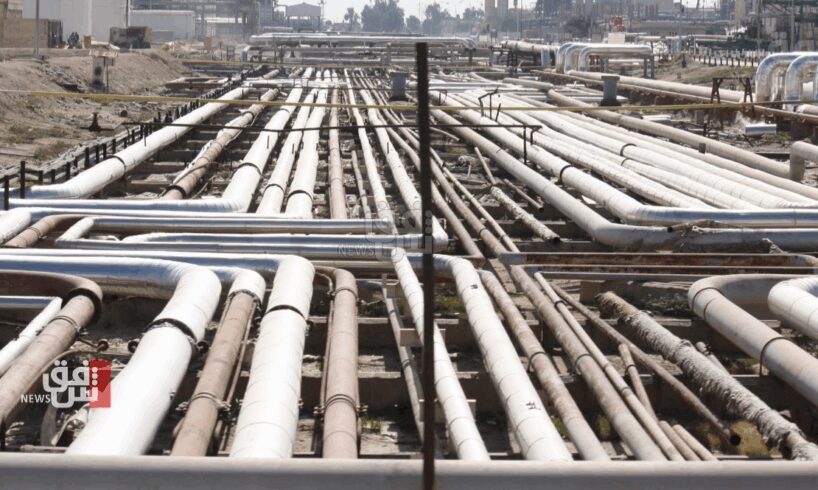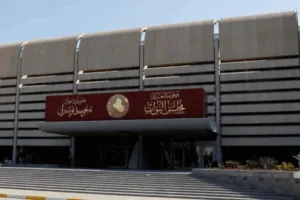
2025-07-21T20:24:23+00:00
font
Enable Reading Mode
A-
A
A+
Shafaq News – Baghdad
Turkiye’s decision to terminate a decades-old oil pipeline agreement with Iraq has exposed deep structural vulnerabilities in Baghdad’s export strategy, according to Iraqi economic expert Ahmed Abdul Rabeh.
Speaking to Shafaq News on Monday, Abdul Rabeh said Ankara’s move to end the 1973 pipeline accord—announced by Turkish President Recep Tayyip Erdogan and published in the Official Gazette—signals a strategic realignment in Turkish energy policy and reflects Ankara’s broader resistance to an international arbitration ruling in Iraq’s favor.
“The decision not to resume oil pumping through the Kirkuk-Ceyhan line highlights Turkiye’s shift away from previous international obligations,” Abdul Rabeh stated. “It also reveals Iraq’s overdependence on southern export routes, which now handle over 90% of total crude shipments.”
The suspension of oil exports via the pipeline dates back to March 2023, when an international arbitration tribunal in Paris ordered Turkiye to pay Iraq $1.4B in damages. The ruling stemmed from a long-standing legal dispute triggered by the Kurdistan Regional Government’s (KRG) unilateral oil exports through the Kirkuk-Ceyhan pipeline, which Baghdad said violated constitutional authorities.
Since the ruling, oil exports from both the KRG and the Kirkuk fields have come to a complete halt, costing Iraq an estimated $20B in lost revenues, according to KRG Prime Minister Masrour Barzani.
Abdul Rabeh emphasized that Ankara is using the impending expiry of the bilateral oil agreement—set for July 2026—as a legal buffer, allowing it to avoid immediate compliance with the arbitration ruling while preparing for a renegotiation on more favorable terms.
“This crisis has exposed Iraq’s lack of redundancy in export infrastructure,” Abdul Rabeh warned. “By relying almost exclusively on Basra’s southern terminals, Iraq is increasingly vulnerable to logistical bottlenecks, political instability, or sabotage.”
He called for an urgent national strategy to diversify Iraq’s energy exports. Proposed alternatives include accelerating development of the Iraq–Jordan oil pipeline, reviving talks on access to Egypt’s SUMED pipeline, and expanding capacity at southern ports.
Abdul Rabeh also stressed the importance of internal political coordination, particularly between Baghdad and Erbil, to create a unified approach to oil governance. “Activating agreements with SOMO and aligning Baghdad-KRG export strategies are essential steps,” he said.
He added that Iraq should use its proposed “Development Road” infrastructure project—a flagship economic corridor connecting Basra to Turkiye and Europe—as leverage in talks with Ankara. “Linking energy cooperation with broader trade incentives may strengthen Iraq’s position.”
End of a 50-Year Partnership
The 1973 Turkiye-Iraq pipeline agreement underpinned more than five decades of bilateral energy cooperation, allowing Iraq to ship millions of barrels of crude from Kirkuk to the Turkish port of Ceyhan. The deal, updated several times—in 1976, 1981, 1986, and 2011—was extended by a pivotal 2010 protocol, which included international arbitration clauses under French law.
In 2014, Baghdad filed for arbitration after KRG began exporting oil independently through the pipeline. The tribunal’s 2023 decision, which favored Iraq, marked a turning point in the legal and commercial aspects of the agreement.
On July 17, Iraq’s Council of Ministers approved a new internal agreement with the KRG to restart crude flows. The deal set a flat transportation fee of $16 per barrel and included production cost subsidies, but Turkiye has so far declined to reopen the pipeline.
Abdul Rabeh concluded that while Turkiye’s move poses immediate risks to Iraq’s export capacity, it also presents an opportunity. “If Baghdad seizes this moment to modernize its energy infrastructure and unify its domestic front, the country could emerge with a stronger, more resilient export system.”





